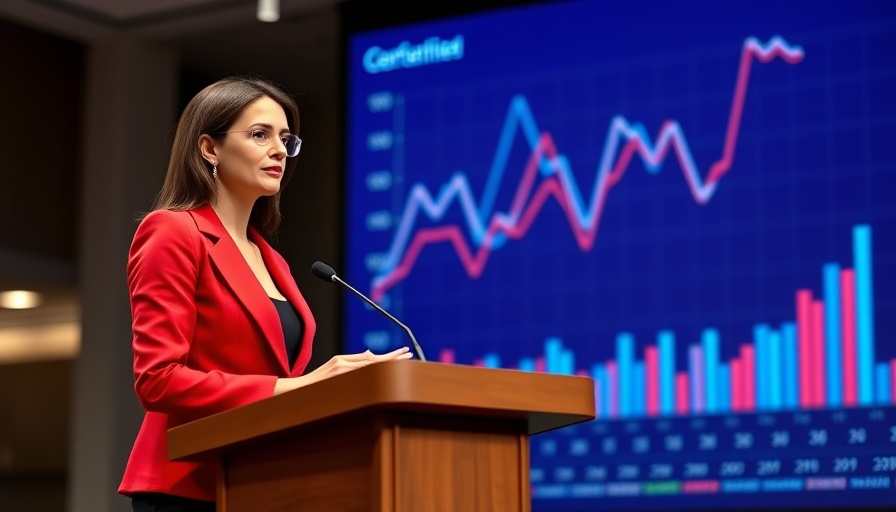
Global Trade Confidence Faces Unprecedented Challenges
As the world gears up for the International Monetary Fund (IMF) meetings, a palpable sense of unease envelops the global trade landscape. Recent discussions have painted a grim picture of economic confidence, primarily due to the ongoing trade turmoil spurred by tariffs and geopolitical tensions. Import-export companies, who thrive on stability and predictability, are now facing uncertain times that require adaptive strategies and resilience.
Understanding the Current Trade Wars
With tariffs increasingly becoming a tool for political maneuvering, businesses are finding themselves navigating a complex web of regulations. Tariffs, which can lead to increased costs and reduced market access, may serve short-term political goals but carry long-term consequences for global trade. Import and export companies must remain vigilant and flexible, understanding the changes in both their cost structures and market strategies.
The Realities Facing Import-Export Companies
Amidst this backdrop of uncertainty, import-export companies need to reevaluate their risk management strategies. Economic fluctuations and changing trade policies underscore the importance of having diverse supply chains and adaptable operational models. This is the time for businesses to focus on establishing solid relationships with suppliers and customers and to stay informed about market trends that could influence their operations.
Opportunities Amidst the Challenges
While the challenges may seem daunting, there are also opportunities for those willing to innovate. By adopting technology such as blockchain for supply chain transparency, businesses can mitigate some risks associated with tariffs and trade disputes. Additionally, engaging in forums and discussions at the IMF meetings can open the doors to new partnerships and alliances that may provide competitive edges in the market.
A Call for Strategic Adaptation
Import-export firms must harness these turbulent times to rethink their strategies. This can be accomplished by focusing on efficiency, understanding new market dynamics, and being prepared to pivot quickly as global trade policies evolve. Companies that are proactive and well-prepared will emerge stronger, ready to capitalize on new opportunities.
Engage with Insights to Navigate Trade Volatility
In conclusion, as world leaders gather to discuss economic strategies and trade policies, it is crucial for businesses engaged in import and export to remain informed and agile. Seek out financial insights, attend relevant workshops, and adapt to the changing landscape to thrive in these turbulent times.
Explore further insights into financial trends and best practices in the import-export industry to ensure your company is well-positioned for success.
 Add Row
Add Row  Add
Add 




Write A Comment